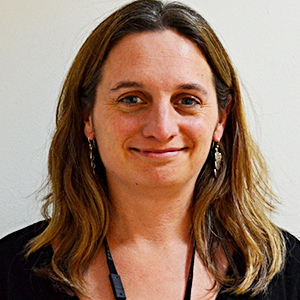This is my last blog for this page so I hope you’ll forgive a longer one than usual. Fortunately, my much wittier boss will be taking up the mantle shortly so you can continue to follow national progress on implementing Francis and improving quality. You can also follow him on Twitter @GavinLarner.
Six months in from 'Hard Truths' and some 15 from the Inquiry reporting, much is changing – so much so that phrases like ‘the post-Francis NHS’ are now commonplace, with numerous commentators and researchers trying to dissect and quantify ‘the Francis effect’ - see the Nuffield Trust's important research on this.
Everyone now talks about compassion, though it’s challenging to make this an everyday reality in the NHS, as explored in Maxine Craig’s insightful recent blog. NHS Change Day and the #hellomynameis campaign show the strength of the frontline movement for better care. Thousands of staff at all levels are taking part in new leadership programmes from the NHS Leadership Academy.
At national level too, activity has been rapid. This week, NICE published draft guidance on safe staffing for nursing in adult inpatient wards in acute hospitals and shortly a new safety section of NHS Choices will make transparent staffing levels in every hospital together with a wealth of other information on patient safety. Government has accepted the recommendation from Sir Norman Williams and Sir David Dalton’s review on the duty of candour. Pilots of the new Care Certificate for healthcare assistants and support workers are under way.
The Care Quality Commission is changing the way it regulates, inspects and rates care services, based on 5 key questions on whether services are safe, effective, caring, responsive to people’s needs and well-led. You can contribute to the consultation where you can find detailed draft guidance covering seven areas (acute hospitals, community hospitals, care in the home, NHS GP and out of hours services, hospice care, mental health services and care homes). Failings in care are being acted on more quickly and decisively through the new single failure regime.
There is of course much more to do. We know that safer clinical systems that reduce the scope for human error are essential to delivering better care more reliably for every patient. Reducing harm and implementing the findings of Don Berwick’s advisory group [re-read it here] need to be top priority. A systemic and systematic focus on safety reduces waste and strips out avoidable cost too, as the experience of the Virginia Mason Medical Centre and Salford Royal show - read Jeremy Hunt’s recent speech on this.
We know that even within largely strong organisations, there can be ‘dark spots’ of poor care where staff feel unsafe to raise their concerns for fear of victimisation and bullying - read key research on this issue. There is more to do on supporting staff to speak out safely and responding to the concerns of those that do.
And implementing the lessons of the Inquiry is not just about changing care in hospitals. Panorama’s horrifying exposure of neglect and cruelty 'Behind Closed Doors' reminds us that learning from Francis demands a whole system approach to safer, more compassionate care, in a culture of openness where staff are recruited for values, and trained and supported to deliver their best.
I joined the civil service nearly 15 years ago as a Pollyannaish fast streamer with high hopes of changing the world, or at least a few significant aspects of social policy. It’s an amazing, if at times exasperating, place to work. There have been some real highlights – working with patients and clinicians on the stroke strategy, developing Every Child Matters, working behind the famous black front door of No10, and in Ministerial private office. I’ve worked with many brilliant, committed and inspiring people. But it’s time to branch out and try something slightly different.
There have been a few personal hard truths along the way – largely about the all-consuming nature of working on a ground-breaking, multi-agency programme of work, and the impact of attempting to combine this with the manifold impossibilities and anxieties of solo parenting (there are blogs aplenty in that, would that I had the time and energy to write them…).
As for many bloggers, my worthy intentions of regularity, readability and relevance have been thwarted by the urgent demands of the day job, and perhaps also by the still relatively unchartered waters of reconciling the anonymous, impartial, behind-the-scenes bureaucrat role with the personal voice and views needed to make a blog come alive.
It’s been a huge privilege to be a part of the Francis journey so far, and in my next role (at the General Medical Council working on standards and guidance for doctors) I hope to continue to make a difference to safer, more compassionate care. Thank you all for reading and good luck with the next phase.

1 comment
Comment by Maxine Craig posted on
Mary thank you. I am sorry I just found your blog and it's your last one. I loved the image of us all as Polly Anna , new fresh full of hope and belief that we can make a difference. I firmly believe each of us can , if we understand our sphere of influence . A few of us have our heads together, thinking about bringing an invited audience together to look at the DO of compassion, if we pull it off it would be great in your new role if you could come. Much of my work over the recent years has been with medical staff, they too need kind responses. Please get in touch if you want more info